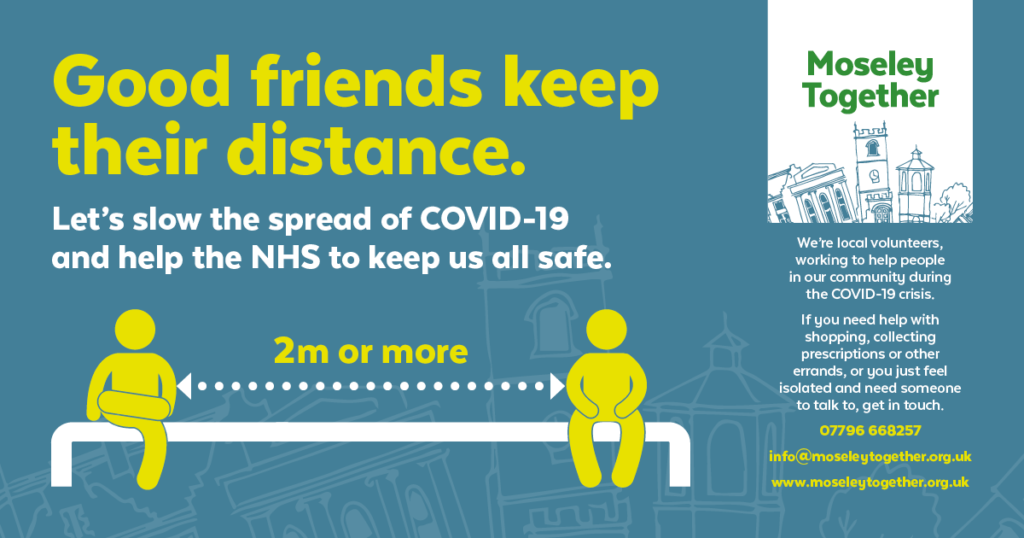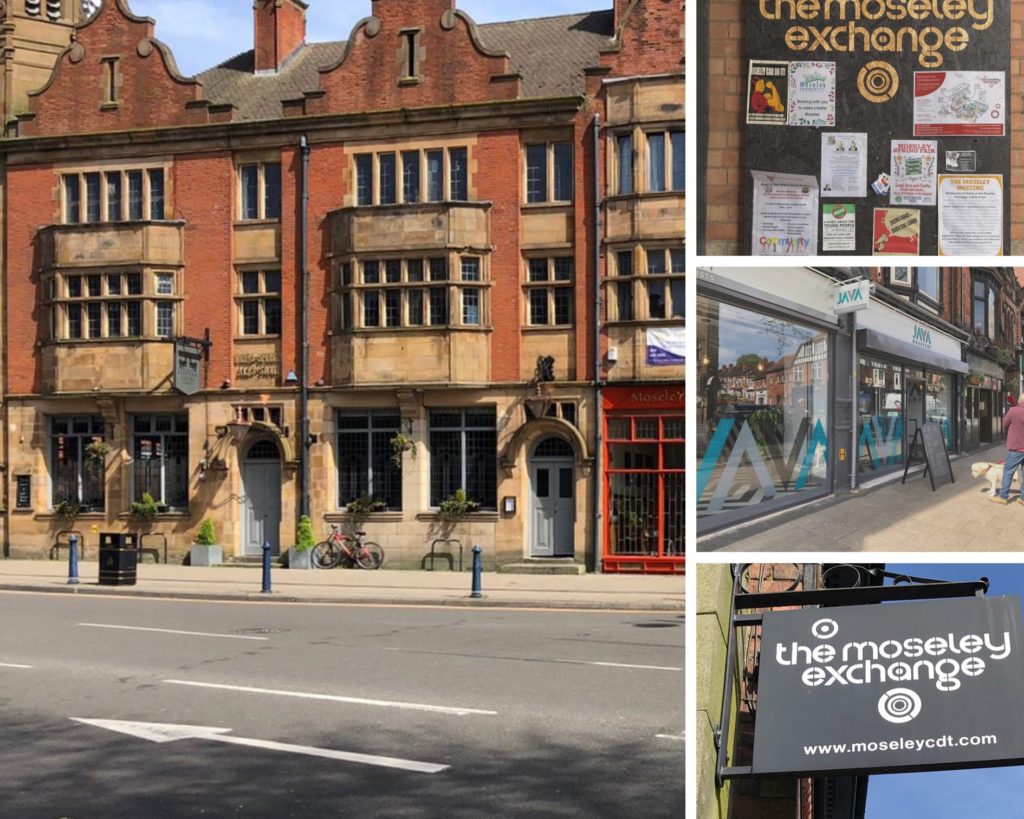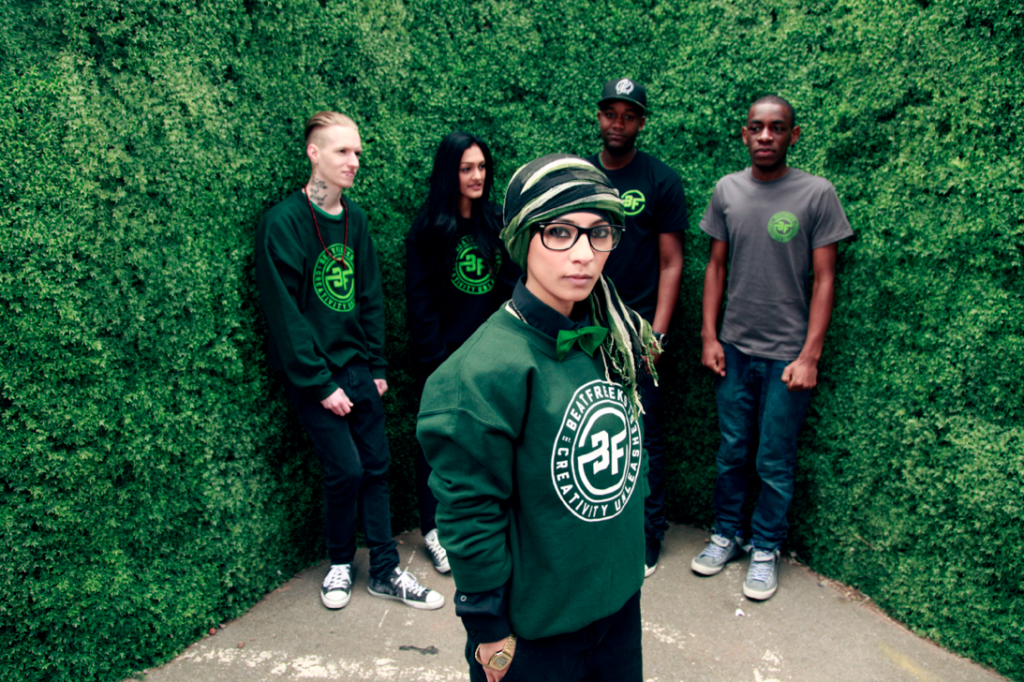Business not as usual: Dr. Steve Harding shows, how organisations and coworking hubs in Birmigham (UK), have responded to the Covid 19 Crisis. Three organisations are featured to give a snap shot of responses highlighting actions and approaches. These cases give insights into responses by locally driven coworking centres, enterprise support agencies and for community engagement in response to the Covid 19 crisis.

Infrastructures to help at the grassroots (Birmingham, UK)
The Covid 19 crisis has made extraordinary demands on civil society and third sector organisations. What issues can be tackled now and what possibilities will there be once the crisis is over? For Birmingham three organisations are highlighted to give a snap shot of responses highlighting actions and approaches. These cases give insights into responses by locally driven coworking centres, enterprise support agencies and for community engagement in response to the Covid 19 crisis.
These organisations are:
1. Moseley Community Development Trust (MCDT) a community anchor organisation run by local residents which operates the coworking facility the Moseley Exchange of some 50 enterprises.
2. The i-SE, a social enterprise support organisation which offers business consultancy to social entrepreneurs and runs a Womens Enterprise Hub in inner city Birmingham and
3. Beatfreeks, a collective of social entrepreneurs which gives a voice to young people in Birmingham and forges links to civic society.

Actions – Practices to cope
For each organisation a fast response to the crisis was critical and three focus points for action became clear – mobilising local volunteers, providing business advice to social enterprises and promoting early steps for social enterprises and SMEs to innovate out of the crisis.
MCDT as a community run hub was already providing support for volunteering in the locality and also had a clear social mission in running The Exchange coworking centre (www.moseleyexchange.com) as well as providing social activities such as help for rough sleepers. Two workers were already engaged in community support and MCDT was able to quickly target resources to set up a website “Moseley Together” www.moseleytogether.org.uk to focus on scaling up existing volunteering in support of vulnerable local people . In 14 days, 256 volunteers were recruited to help 87 households in need of food and medical support as well as helping homeless people find accommodation and food.


Immediate help and infrastructure support
The coworking operation needed to be closed down and enterprise to move to working from home but one co-worker who had expertise in testing services (for STIs) was supported by the Exchange which opened solely for his business to scale up providing testing services for Covid 19 to NHS health service staff.
The response of i-SE was focussed on providing business information to 3rd sector organisations on sources of help (iSE www.i-se.co.uk). The immediate need was to reach out to small enterprises through a help line to disseminate details of the government’s financial packages to help small social enterprises and SMEs, to offer advice and help them apply for urgent financial assistance.
The Womens Enterprise Hub, run through i-SE, became a focus for local action within the Birmingham South Asian women’s community acting as a trusted resource for advice for female entrepreneurs in the neighbourhood.
The response of Beatfreeks (www.beatfreeks.com) was to prompt other small enterprises to consider offering services in new ways, given the severity of Covid 19 , to prepare for the new possibilities which will emerge from the crisis. Innovations suggested included developing responses such as on line training provision, on line focus groups, reaching out to social media content providers and building new competencies and services.

Impressions of these early actions
Having existing well established and financially secure organisations in place enabled resources from MCDT and i-SE to be very quickly scaled up to build into community volunteering activities and acting as local hubs. This involved cooperation of their employees, switching the emphasis of existing staff to these new tasks, with high levels of commitment and trust.
Effective governance by the Boards of MCDT and i-SE quickly endorsed these actions including the personal safety and wellbeing of staff and volunteers and the financial implications to give underpinning support to the clear leadership evidenced by the CEOs of both organisations.
The innovation example of Beatfreeks as an advocate for early adoption of innovation, acted as a way to reach out across the social enterprise sector and suggest new possibilities.
Beatfreeks are launching some research into the impact of Covid on young people. It is called „Take The Temperature“ and speaking to over 1,500 young people across the UK to understand how they are feeling now and for their future. The research launches on Weds 6th May. This approach helped organisations to consider how they might design services to respond to the crisis- recognising uncertainty and seeking conversations at all levels.
This is particularly so for coworking hubs – there will need to be a rethink of the social dimension in business and local engagement once the crisis is over with an emphasis on innovation to deliver services. The three cases demonstrate the value of community focused coworking and enterprise support enabling flexibility and responsiveness at the start of the crisis and providing foundations for the future post Covid 19 – business not as usual.
Appendix:
Initiative for Social Entrepreneurs (Website)
Moseley Exchange (Website)
Beatfreeks (Website)
STEAM house – for interdisciplinary thinking and working (Website): The Steam Fellows Programme supports academics in practice based research linking them to practice through prototyping new ideas, approaches and products. The intersection of the analytical approach of STEM and the creative thinking of the Arts
